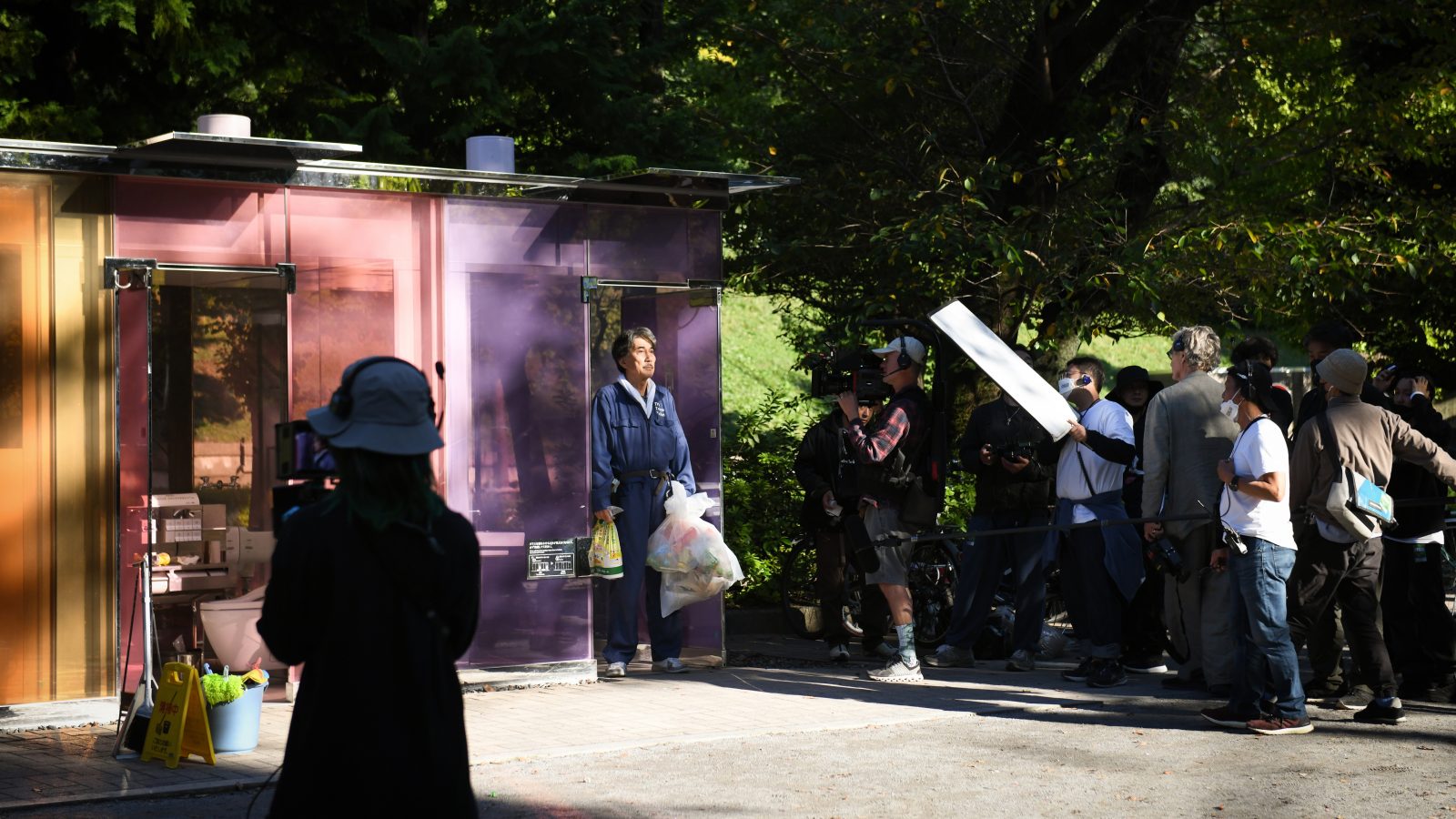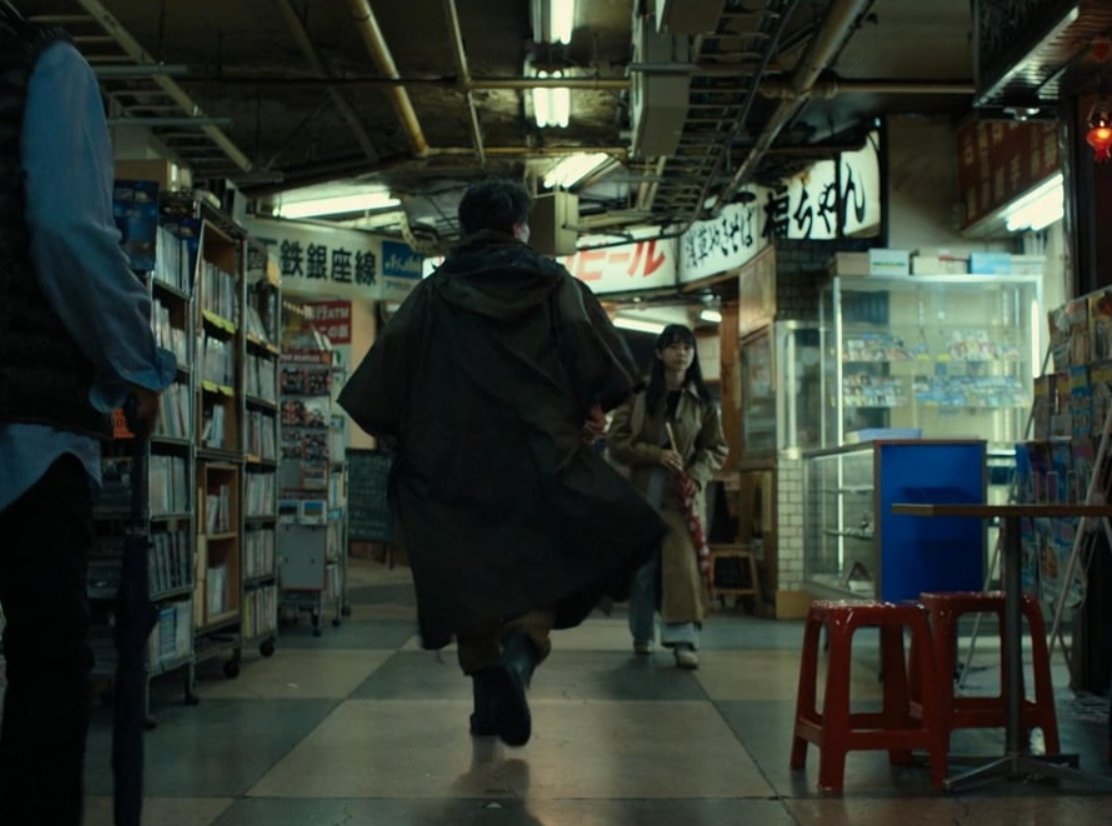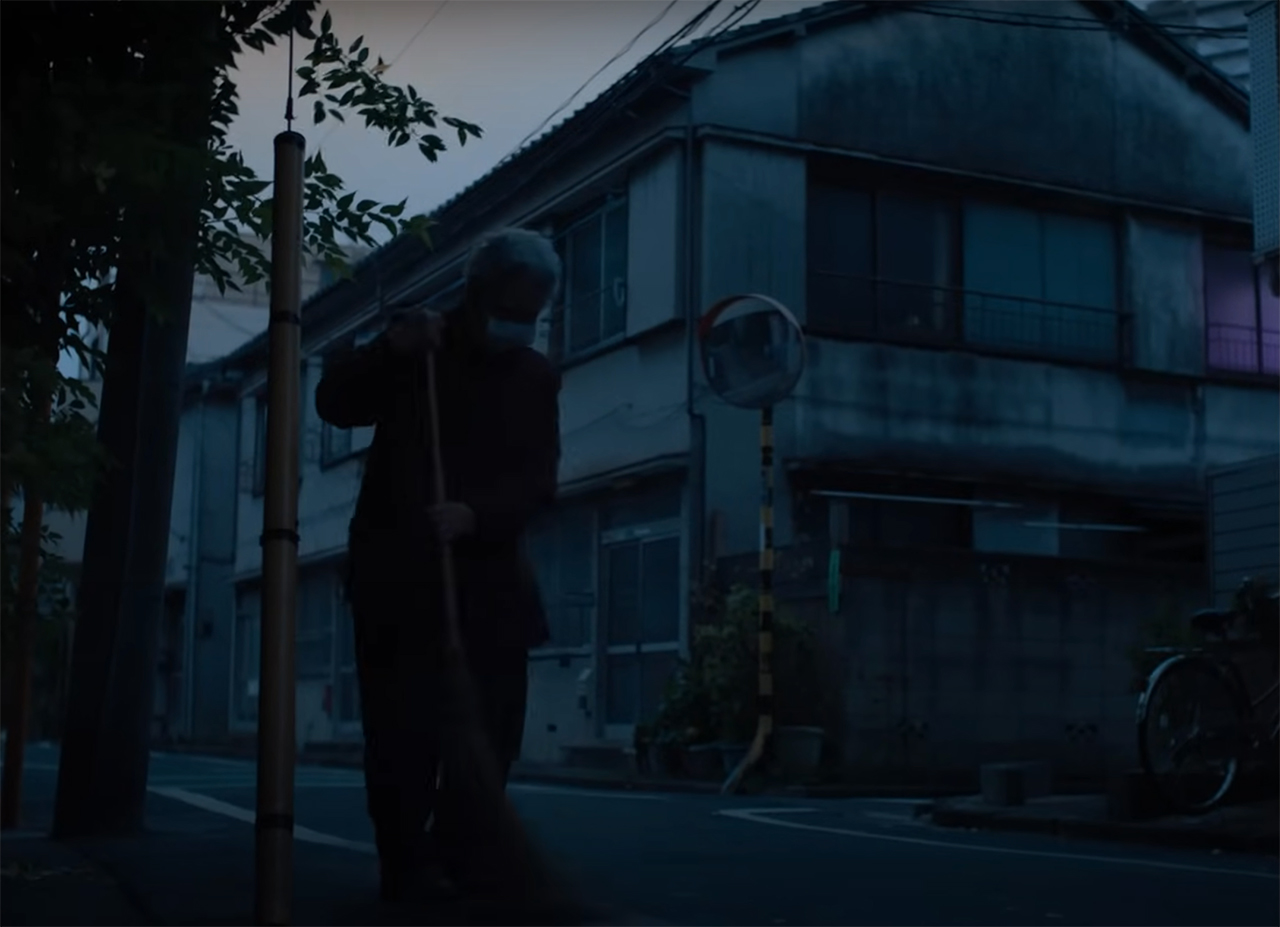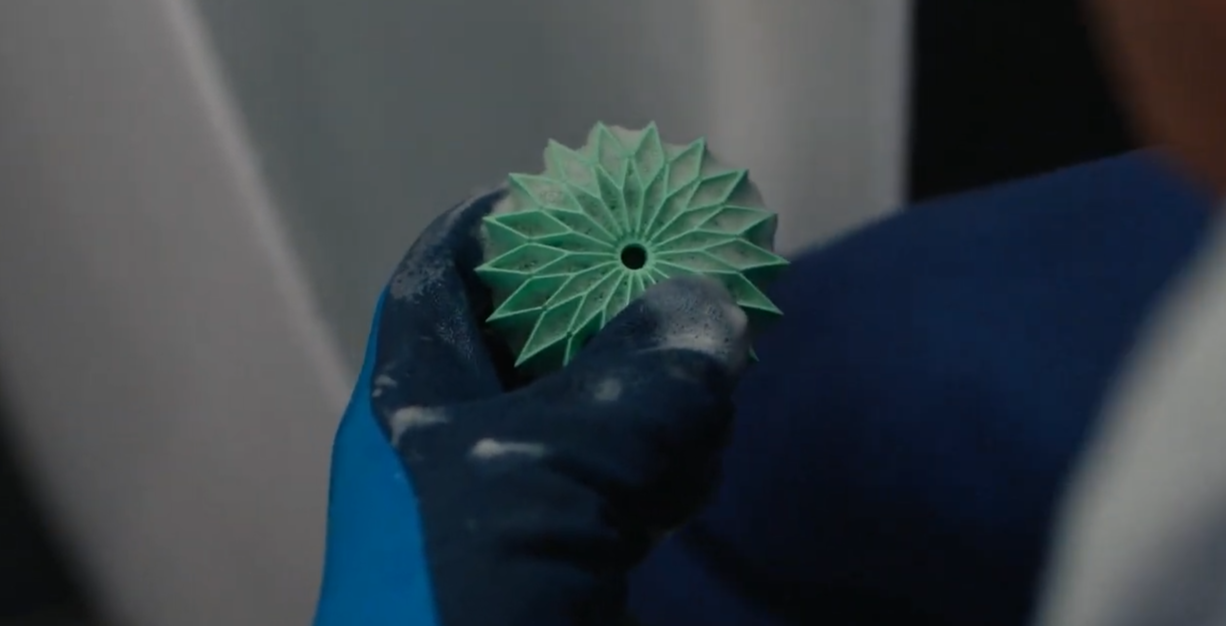⛆ Perfect Days - A Shaman in the City ⛆
Musician otay:onii's song "W.C. 公共廁所" ends with the sound of flushing. She has spoken about the strange intimacy of toilets. How it is one of the most vulnerable positions you can be in, of how separated lovers may still physically entwine via excrement. Death growing into eternity. In interviews, director Wim Wenders has talked about how a main inspiration for Perfect Days was the idea that if the entire world is sacred, then that includes toilets.

- Introduction
Before getting to religion, I want to acknowledge the sociological elements of the film, of which I am not an expert nor really feel qualified to talk about. As Alice Y. Tseng points out, the subject of the film, Hirayama, does not live nearby the specially designed toilets featured. He lives in the lower cost area of Sumida and must drive across the highway everyday to clean restrooms he himself does not use. They were built in wealthy Shibuya and funded by organizations with links to labor rights violations and war crimes. So while the origin of filming conditions may be suspect (but just as corrupt organizations can still aid in reducing disease while doing other very wrong things), even so they are still restrooms for public-use, and I think this attribute is essential to the character of Hirayama that is being communicated.
I have seen some people say that the film is just a long advertisement (which may be true) or that it romanticizes physical labour (whose workers should be treated better), but I believe with the labour being the societal necessity of public sanitation (a field that ranges from highly dangerous to banal), and that there are many people in the real world that love their janitorial job (beyond being forced to work overtime, as seen with Hirayama) we can permit this depiction as a possible and reasonable one.
I believe the film's focus on concepts that have been co-opted by corporate purposes beyond their original intention (like mindfulness as a way to be more productive rather than a spiritual practice) are able to keep their original sacred context, especially when working for the public good rather than profit. How do you reconcile religion with contemporary civilization in a way that does not make religion a drug prescribed to survive?

- The City & Sensation
A great deal of backstory (that is never revealed) was written for the character of Hirayama by both the crew and actor Koji Yakusho. One piece shared in commentary was that the character once indeed worked in his wealthy family business. A major change from that life to his current one is no longer working for a profit-seeking company but rather a public utility. Even if you were doing something you felt was good, it is hard to really feel it in a non-abstract way compared to the real feedback of cleaning a bathroom where you know you are doing something because you're cleaning a toilet and see it clean, not organazing a spreadsheet for a budget allowance to be allocated to lower a percentage even if it was to do something good... (again not to romanticize physical labor which can also be done in an abstract environment)

Even though he lives a mostly solitary life, Hirayama is fully integrated into the web of his city. He could not live this way without the city quirk of thousands of people supporting each other without knowing each other. The restuarant cooks, the book store owner, the bathhouse operator, but also those others that are usually unseen like him: the employees of the water company, the construction workers who built his home, the factory workers who built his car, all of the people involved in the logistics. Even something as simple as a vending machine cannot exist without thousands of people working to make all of its component parts: from the engineers who designed it, to the miners of the raw materials, to the toolmakers of the mining tools and off we go again on the web of society through every minute detail of everything.

The thing that wakes Hirayama every morning is the sound of a broom sweeping the street. It's a very beautiful sound and the deep breath and slight smile he gives as he looks out the window each morning, it makes me think of people who say the most important thing in life is being excited/not dreading getting out of bed in the morning. This is truly a movie for headphones (some of the only sounds I don't like in the full 2 hours are the sound of the sliding door on his car and the sandwich mouthsounds). My favorite sequence is at his front door when he unplugs his phone, puts his camera in his pocket, the way he grabs the keys and shuffles them twice in his hands. There is something about the weight, the sound of it, the feel, you can taste and smell it. All things have a weight and a sound.
The things that Hirayama likes to do often aren't an entertainment. He'll glance at the baseball game or sumo but what he seems to really relish & focus on are things like the wind in the trees, the sound of music, the sensation of blowing bubbles in the warm bath. In some ways, a movie doesn't affect you until you leave the theatre, and 5 watches deep into Perfect Days, every time afterwards it has given me such a deep sense of peace that I've carried with me that has allowed me to focus on and get so much more out of the world that I usually can't without the ritualistically built atmosphere (luckily there are other ways to get there).

The first time I saw the scene with the green urinal puck, I gasped. The transcendent beauty of it (truly as beautiful as a sunset over the mountains) and then the visual and auditory beauty of cleaning it with the very particular sponge. It is so beautiful and it makes so much sense! Something to reduce odor in the washroom that we made. And it just continues! Just after, cleaning a tube with a rag for instance, I want to replay it over and over.
But it may be that it is too perfect & curated, only something that happens in film. The city is so quiet to allow you to hear the wind and the beautiful creaking of the bike's gears and kickstand. You don't hear any deafening cicadas or unwanted music to break you from your quiet peace.
- A Contemporary Sacred Animism
Hirayama's first place he visits on his day off is a shrine where he prays. Every lunch break he sits within shrine grounds. He stops and bows before entering, making real the boundary line of a doorway to a sacred place (that becomes sacred because of the reverence we show it). He bows to the trees after they allow him to take their picture. When he wishes to take a plant home he shows great respect for the priest in asking him if he may. With the Shinto tradition of divine cleaning and purification, these two men are quite similar. If the whole world is sacred, then so are the toilets, if not especially so. The sacred & profane act of killing, eating, and digestion from which we gain our life vitality and of which we spend a great portion of our life. The other acts within this process are seen and shared. The end is hidden, private, and solitary. To have sanctuaries we may retreat to for this may be the greatest of all societal luxuries. To ritually prepare and purify them is such a spiritually noble act.
When asked by his sister if he really is cleaning toilets (by the way, the actor of his sister plays the part so well and makes the scene full of depth which otherwise could've fallen flat if not for the way she slinked away and glanced back after the hug), he nods with pride in response, it is a noble profession. Nothing money could buy could be better to him than what he has (besides gas to get home). He does not think to take offense to his sign getting knocked over at the beginning by the businessman, as if the wind knocked it over, why be angry at the wind?
His time off, his nourishment. After the workday he ritually cleans himself and eats and reads. On days off, he purifies his clothing, refills his precious little item that captures representations of wonderful things in new ways (what will he do with the tins and tins and tins of pictures he saves? I have trouble imagining him going through them, maybe in the winter? Maybe he just loves the process of laying out the tins, sorting the pictures, ripping some, and filing them away. He knows in his home is a treasure trove of life images like a beating heart that adds a depth to the space), at the bookstore he finds a new source of intellectual nourishment to devour, digest, & help him grow like things with life do.

The vanity of vanities of Ecclesiastes that lurks behind many of our lives, does not seem to be something that would worry one such as Hirayama. He is truly enjoying everyday (just as Ecclesiastes tells you to do after you've cultivated faith in the will of something you're not supposed to try to understand, (though I wouldn't think Hirayama is making his actions for fear of judgement after death (and thus is in no need of saving (just as it is hard to save someone who has no guilt nor fear)))).
9:5 For the living know that they shall die: but the dead know not any thing, neither have they any more a reward; for the memory of them is forgotten.
6 Also their love, and their hatred, and their envy, is now perished; neither have they any more a portion for ever in any thing that is done under the sun.
7 Go thy way, eat thy bread with joy, and drink thy wine with a merry heart; for God now accepteth thy works.
8 Let thy garments be always white; and let thy head lack no ointment.
9 Live joyfully with the wife whom thou lovest all the days of the life of thy vanity, which he hath given thee under the sun, all the days of thy vanity: for that is thy portion in this life, and in thy labour which thou takest under the sun.
10 Whatsoever thy hand findeth to do, do it with thy might; for there is no work, nor device, nor knowledge, nor wisdom, in the grave, whither thou goest.
There is no need to hurry off to death or to fear it if you're having a good time all the time. This being the simple pleasures that Hirayama partakes in that are not shallow. The big difference from Ecclesiastes again being that Hirayama is living for life rather than for after life. But what when the fragile glass breaks?
- The Chains of Memory Tie Us to Earth
The building of tension in the second week leads to his past catching up with him. It may have really started in the first week when he is asked if he's married and he gazes through the mirror (again, in unrevealed backstory mentioned earlier, it was written that he had once been married (not that if he was or not necessarily matters, I just know now and can't unknow - the look hirayama gives the mirror is what really matters)). Then his niece leaves him and he refuses to go see his dying father and he hugs his sister and weeps as they leave and he holds his pillow tightly into the night staring off. He's overwhelmed with emotion, but importantly, he doesn't try to distract himself from it. He allows himself to feel everything out on the street then doesn't read to take his mind off of it. He faces, in his mind, whatever it is that has led him to this life of solitary loneliness.
The next morning when he covers and works overtime and the stress continues to build, then, when he walks in on a tender moment at the restaurant, something breaks. He panics, rides away, buys cigarettes & drinks, and goes to gaze out on the river. Whatever it was inside him that stirred this was finally too much for him to handle and he needed help to cope. For the first time in the film he couldn't face life, and it seems his hermetic lifestyle had kept him safe from this for long enough to cough violently at smoking. He is only able to smile again on the bike ride home after trying to help the dying man face the world with what he has left. He is able to see komorebi again and falls asleep. After most of his dreams being of trees, people, the city, and words, his last dream is of flowing water.
(I've heard people say that they wish movies would stop ending with the main character cycling through a bunch of a emotions, but luckily I've never seen another film that did it so I can interface with it directly) The toss between these emotions starts out as clean cut shifts between 'singular' feelings (though some that are communicated are much more complex than just happy/sad). Then as it develops it feels like a fight as he blown about a restless landscape. The scene ends on such an intensly mixed emotion facing the sun that you can't take with you a final note of feeling good or despair. It's the intensity of both simultaneously that we are left with